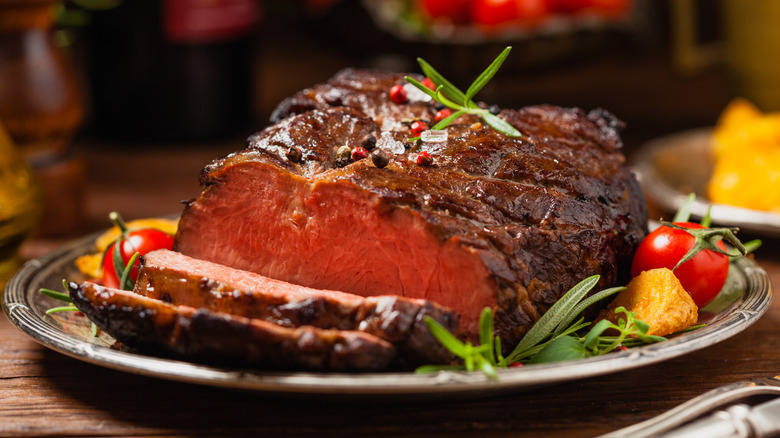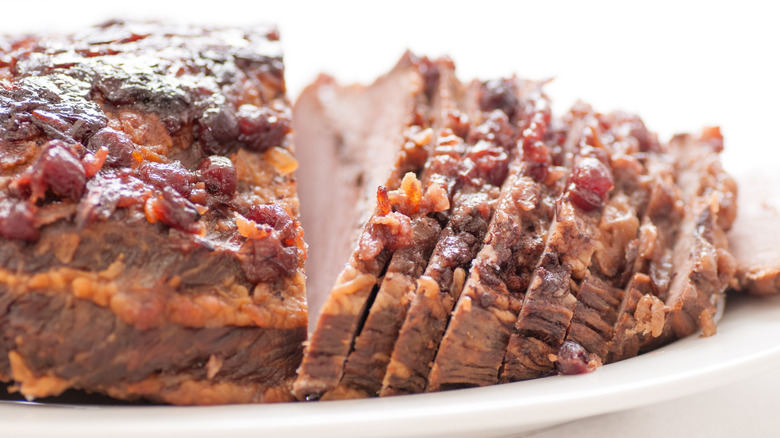Don't Settle For Braising Your Brisket In Water
Brisket and braising go hand in hand. Laden with tough connective tissue, the cut requires a low, slow, and super moist cooking method that can help break down collagen and melt fat. Not only does the technique work to tenderize the meat, it also ensures it stays juicy, despite the lengthy cook time. That said, while any liquid could be used for braising, why limit yourself to water?
Let us be the first to say that there are definitely advantages to using water. In addition to being a quick and convenient braising liquid, it's more than capable of softening meat and maintaining moisture. It's a great neutral option you'll always have on hand that won't outshine a heavily spice-rubbed piece of meat. Braising with water can even highlight the brisket's natural flavors. However, the problem is that brisket cooked in bland liquid runs the risk of it tasting just as bland once it's cooked.
So, to avoid crafting lackluster brisket, especially after hours of waiting for the meat to fully cook, it's in your tastebuds' best interest to trade water for a more interesting braising liquid. Elevating flavor with layers of complexity, choosing a liquid other than water can give your brisket a major upgrade, even if you plan on keeping the recipe ultra-minimal.
For better tasting brisket, braise with better liquids
Nearly any liquid other than water can be used to braise a drool-worthy beef brisket. After trimming away some of its fat and browning the meat for some color, you can ponder which liquid will take the protein to the next level most effectively.
Of the many options available, broth or stock tend to be the go-to choices. Beef, chicken, or mushroom-based options can intensify and enhance the umami already prevalent in the brisket. Using alcoholic beverages such as a crisp lager or jammy red wine is an excellent idea in another direction. As the meat braises, the alcohol levels diminish, leaving behind a burst of acidity and subtle flavor. Similarly, juices like pomegranate, tomato, or cranberry also bring an edge that cuts through the meat's richness while imparting a delicate and nuanced fruitiness.
Likewise, braising liquid can be further elevated with the help of some zesty additions. For example, before pouring in broth or wine, you can sauté aromatics or spices for increased aroma and flavor. Once the liquid has been poured and caramelized bits of fond have loosened, ingredients like miso paste, dijon mustard, or Worcestershire can also take brisket to the next level. But, as long as you're using a liquid other than water, brisket is sure to boast big, bold flavors even without any extra ingredients.

